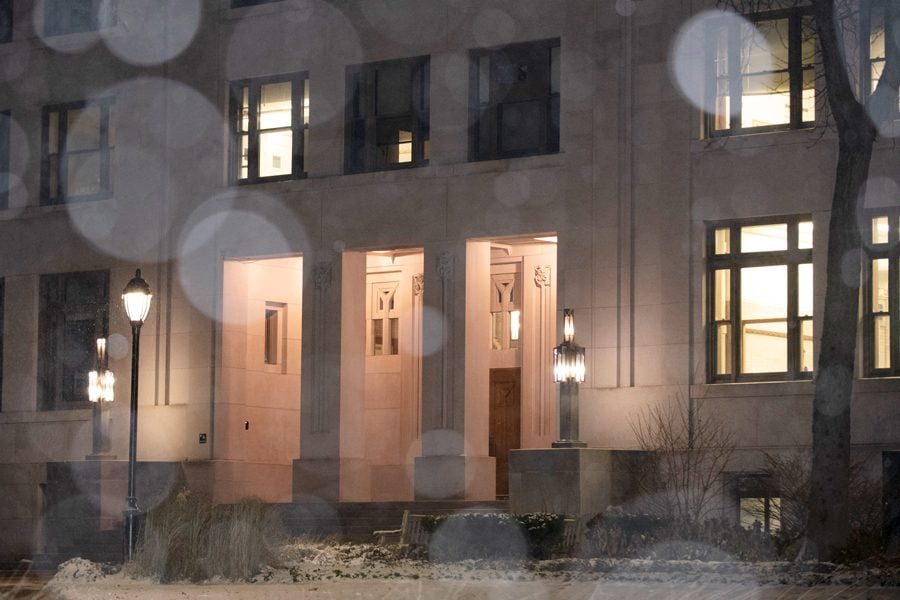Northwestern is letting Kanazawa stay, and students are angry
Daily file photo by Colin Boyle
Senators had to make decisions about which funding requests to prioritize. Groups requested funds totaling between $8,000 and 11,000, while senators only had $5,000 to allocate.
January 8, 2019
Students are voicing their concerns about the impact of controversial visiting scholar Satoshi Kanazawa’s presence and research after Northwestern signaled it would not remove him from campus.
Kanazawa — whose works bear titles such as “Why Are Black Women Less Physically Attractive Than Other Women?” — is spending his year-long sabbatical from the London School of Economics on Northwestern’s Evanston campus. Provost Jonathan Holloway said Kanazawa is not being paid, teaching or collecting research data, but did not clarify what Kanazawa is doing.
Once students became aware of the subject matter of Kanazawa’s research, calls for his removal spread fast. Weinberg junior Deborah Shoola posted a Change.org petition during Fall Quarter which received over 5,200 signatures. The petition stated that if the University was committed to maintaining a safe environment for all students, Kanazawa should be asked to leave.
In response to student concerns, Holloway sent an email Dec. 13 clarifying that while Kanazawa’s views are “antithetical” to Northwestern’s values, he will remain on campus for the remainder of the academic year because he is “entitled to express his personal views.”
Communication junior Melia Agudelo said it was “crazy” that the University allowed Kanazawa to conduct research on campus in the first place. However, she said she more frustrated when she read Holloway’s email about why the University chose to let Kanazawa stay.
“The way they made it seem like they were supporting the student body and then saying ‘Oh, we’re going to keep him on campus’ was pretty counterintuitive,” Agudelo said. “By saying to the students that they hear them but not actually doing anything about it, I thought that was pretty bad.”
She said she finds it “discouraging” that freedom of expression is used primarily to defend people with racist and sexist opinions.
Medill sophomore Maia Brown said she wasn’t surprised with the University’s response — she said asking Kanazawa to leave campus could cause backlash from the larger academic community.
“They were just kind of like ‘We’re a campus that values freedom of speech and we’re sorry he doesn’t encompass our values,’” she said. “That doesn’t rectify that he wouldn’t be here without Northwestern enabling him to come here. It seemed like an empty attempt to placate people.”
Brown added that it was “discouraging” to see the University ignore student concerns after trying to present itself as an ally.
“Northwestern has been really trying to paint themselves as people who are on board with student activism,” she said, adding that something that’s such a “big deal” to students should be more of a priority for the administration.
Weinberg sophomore Micha Nouafo said Holloway’s email was contradictory, and his insistence that Kanazawa’s views don’t belong at Northwestern directly conflicts with the University’s decision to keep him. She added that it made her feel like there was information Holloway left out, and that the email was worse than not responding at all to the students’ concerns.
After she read his email, Nouafo said it made her feel like the University didn’t care about black women, and in a larger sense, students in general.
“It speaks to how black women on this campus are regarded, but it’s not that it was black women specifically,” she said. “It could have been any marginalized group, and I think it’s really sad that the University wouldn’t have reacted any differently if it were any other group.”
Email: cameroncook2021@u.northwestern.edu
Twitter: @cam_e_cook



